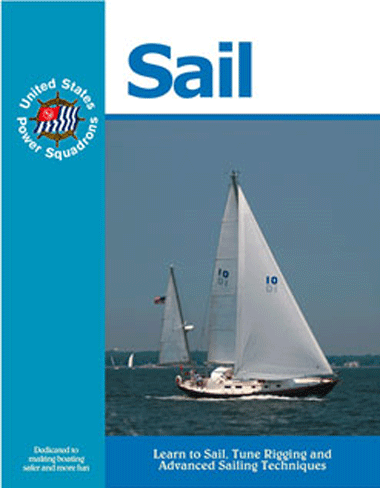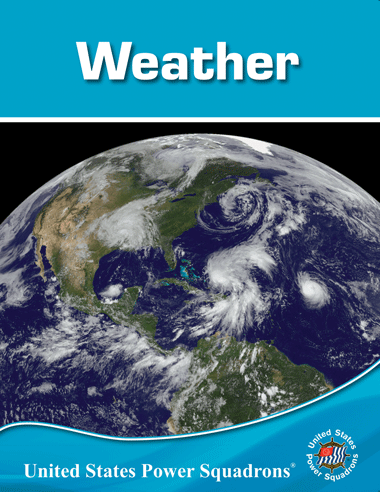Elective Classes


INSTRUCTOR DEVELOPMENT
Unlike other USPS courses, ID is not designed to enhance boating skills. Rather, it deals with effective communications for speaker and teacher - a quality that benefits the individual in all walks of life. It offers practical instruction in:
-
Preparing for teaching assignments
-
Preparing for meeting presentations
-
Effective teaching techniques
-
Conducting efficient meetings
-
Selection and use of audio-visual aids



MARINE ELECTRONICS
Marine Electrical Systems (MES)
This course covers the properties of electricity and the practice of wiring your boat for both DC and shore power (AC). Galvanic and stray current corrosion are covered, as is lightning protection. The course manual concludes with a chapter on troubleshooting and repairs. This has been found to be extremely helpful to make boaters feel more comfortable and safe hen maintaining their boat’s electrical system.
Marine Communications
This course covers everything you need to know about on-board communications. It begins with a brief history of radio communications and an explanation of the various types of marine radios, focusing especially on the VHF/FM radio. Important radio operating procedures are included as well as Federal Communication Commission rules and licensing procedures, as are. If you are an offshore, deep water boater, options for long range communications are covered. A helpful troubleshooting and communication system maintenance chapter is included.
Marine (Electronic) Navigation Systems
This course goes deeper into electronic navigation systems than other courses. Topics and equipment covered include modern GPS chartplotters, the Automatic Identification System (AIS), up-to-date descriptions of electronics such as radar, depth sounders, sonars, autopilots, computers for navigation, smart phones and tablets for navigation, troubleshooting and maintaining your electronics, and so forth.) Newer devices such as ght vision aids also known as Forward Looking Infrared Systems are covered. In addition, a chapter on networking will demystify the connection of all these devices so boaters get the maximum enjoyment out of their boat’s electronic navigation systems.

RADAR FOR BOATERS
Developed by Canadian Power and Sail Squadrons, this course is up to date for radar technologies available now and into the near future. The course covers the different types of radar, their capabilities and limitations, as well as their features and how they apply to student needs. It covers what you need to know about radar, from how and where to mount the antenna to how to interpret the displays, so you can use your radar for collision avoidance and for navigational purposes.
Students attending this course should have completed America’s Boating Course (or another NASBLA-approved boating safety course), preferably have completed Marine Navigation and Advanced Marine Navigation(currently Piloting and Advanced Piloting), and have boating experience. Radar for Boaters is a required course for BOC-Offshore Navigation certification.

SAIL
Learn about basic sailboat designs and nomenclature, rigging, and safety from experienced USPS sailors. Then tackle the physical aspects of sailing forces and techniques, sail applications, marlinespike, helmsmanship, and handling of difficult sailing conditions. This course will benefit non-sailors as well as novice and experienced sailors:
-
Types of sailboat rigs and hull shapes, including sail configurations and standing rigging
-
Wind and water forces affecting sailboat stability and balance
-
Sail shape and tuning the standing rig
-
Steering and helmsmanship
-
Sailing upwind, downwind and spinnaker handling
-
Heavy weather sailing and storm conditions
-
Boat operations including docking, anchoring and safety issues

WEATHER
Combines an excellent USA Today text with excellent illustrations and sidebars that works well on two levels. For the beginner it makes the concepts clear without being technically incorrect. For the more experienced person it shows all the detail that has been learned in the last decade with doppler radar, better computers and more sophisticated satellites.
Next we have a Power Squadron book that tailors it to boating issues such as reading weather charts and reports. Finally we will draw on some supplementary books for the very unique weather patterns of the Northwest due to our complex and lofty terrain.
-
Weather fundamentals: highs and lows, fronts and troughs, jet stream, fog
-
Weather maps: how to interprept forecast charts and descriptions
-
Forecasting: how its done, what is predicatable and what isn't
-
Local phenomenon: convergence zone, Qualicum winds, ...
-
Winds and waves: when and why our local winds do not follow the theory



